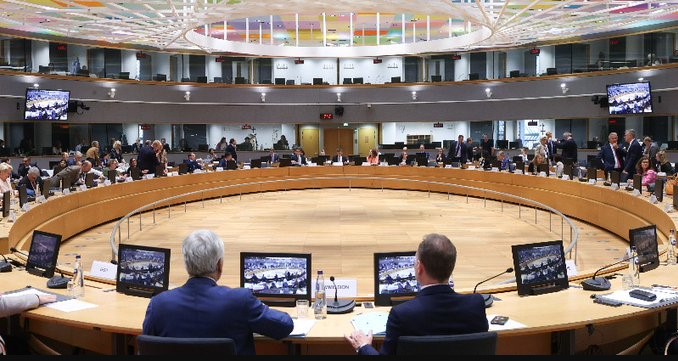One of the key priorities of the Hungarian Presidency of the Council of the EU is to implement a balanced and credible enlargement policy based on merit, while giving new impetus to the integration process of the Western Balkan countries. Hungary’s Minister of European Affairs, János Bóka, emphasized that the Union will not be complete without their accession.
At a recent General Affairs Council (GAC) meeting, which included the participation of Orhan Murtezani, the Minister of European Affairs for Macedonia, the main topic was the European Commission’s 2024 Rule of Law Report. For the first time, this report covered not only EU member states but also the four Western Balkan countries in the accession process: North Macedonia, Albania, Serbia, and Montenegro.
The discussion addressed four key areas related to the rule of law: the justice system, the anti-corruption framework, media pluralism and freedom, and institutional issues related to control mechanisms. Ministers welcomed the overall progress in implementing the Commission’s recommendations and the inclusion of candidate countries in this year’s report.
In addition to discussing the situation in the Western Balkans, EU ministers for European affairs also engaged in the annual Rule of Law Dialogue, focusing on the general state of the rule of law within the EU based on the Commission’s report. Participants emphasized the importance of maintaining dialogue while ensuring objectivity, non-discrimination, and equal treatment for all EU member states.
The Hungarian Presidency also presented its priorities, which include preparing a new European Treaty on Competitiveness, strengthening European defense policy, advancing a merit-based enlargement policy, preventing illegal migration, and shaping the future of cohesion and agricultural policies. Additional focuses include tackling demographic challenges, strengthening EU relations with the UK and Switzerland, fighting anti-Semitism, and finalizing association agreements with Andorra and San Marino.
Preparations for the upcoming EU Summit, scheduled for October 17–18, 2024, also began during the meeting. The proposed agenda includes discussions on Russia’s aggression against Ukraine, the situation in the Middle East, and the first exchange on a report by former Italian Prime Minister Mario Draghi on the future of European competitiveness. Other key topics for the Summit will include migration, security and defense, preparations for the COP29 climate change and COP16 biodiversity summits, and developments in Georgia and Moldavia.





Comments are closed for this post.